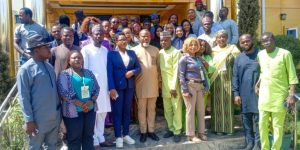
From Nnaji Jekwu Onovo, Lagos
Nigeria will celebrate her 65years of political independence on 1 st October 2025. However, the country has been wobbling and fumbling as she grapples with myriads of social and economic problems. We are politically independence, haven extricated the nation from the suzerainty of the colonial master; but remain economically dependent on foreign countries.
The economic dependence makes it difficult for the country to develop and take its rightful position in the League of Nations. Our development strides can be described as push for development and pull for underdevelopment, as we usually take one step forward and one step backward. We have consistently failed to put in place the key infrastructures necessary for nation building and growth. One such vital infrastructure under neglect is electricity.
Electricity is an increasingly essential commodity in every facet of our life. Most part of Nigeria is plagued with unreliable electricity in both quantity and quality. Where the grid electricity exists, it is often not energized. When it is energized, the quality of electricity in the lines is poor and cannot support simple household equipment. Additionally, many rural communities in the country are not even served by the electrical grid.
This situation has led many people in the country to take action for providing clean and reliable power to their equipment. Gen-sets with heavy diesel bills and a long list of negative externalities have so far been the only solution, if that can be termed as a solution. Power disruptions result in a disruption of fluency of life or the inability to reliably use electrical appliances.
In fact our power generation approach has depended on GUESS cycles instead of GAS power cycles. Gas power cycles refer to thermodynamic processes in which energy absorbed as heat is converted into mechanical work. Commonly, steam and gas power cycles are employed in power generation.
Anyway, in the month of September 2025, the Federal Government through Energy Commission of Nigeria, an agency under Federal Ministry of Innovation Science and Technology took an audacious step towards enhancing the power generation in the country, as it inaugurated National Energy Masterplan Implementation Committee (NEMIC), charging it with the responsibility of spearheading the country’s transition to a cleaner, more inclusive, and sustainable energy future. The implementation targets 50Billion US dollars investment in the renewable energy sector. Let’s hope, this is the magic wand that will resolve the electricity crisis in the country.
The massive increase in oil revenue as an aftermath of the Middle-East war of 1973 created unprecedented, unexpected and unplanned wealth for Nigeria. That was the beginning of the dramatic shift of policies from a holistic approach to benchmarking them against the state of the oil sector. The national currency, Naira, strengthened as foreign exchange inflows outweighed outflows, and foreign reserves were built up. Up until 1985, the Naira was stronger than the US Dollar.
This encouraged import-oriented consumption habit that soon turned Nigeria into a perennial net importer, which became a major problem when oil earnings decreased with lower international oil prices. External 2 reserves collapsed, fiscal deficits mounted and external borrowing ensued with the “jumbo loans” taken in 1979. Most of Nigeria’s macro-economic indices became unstable and worrisome.


